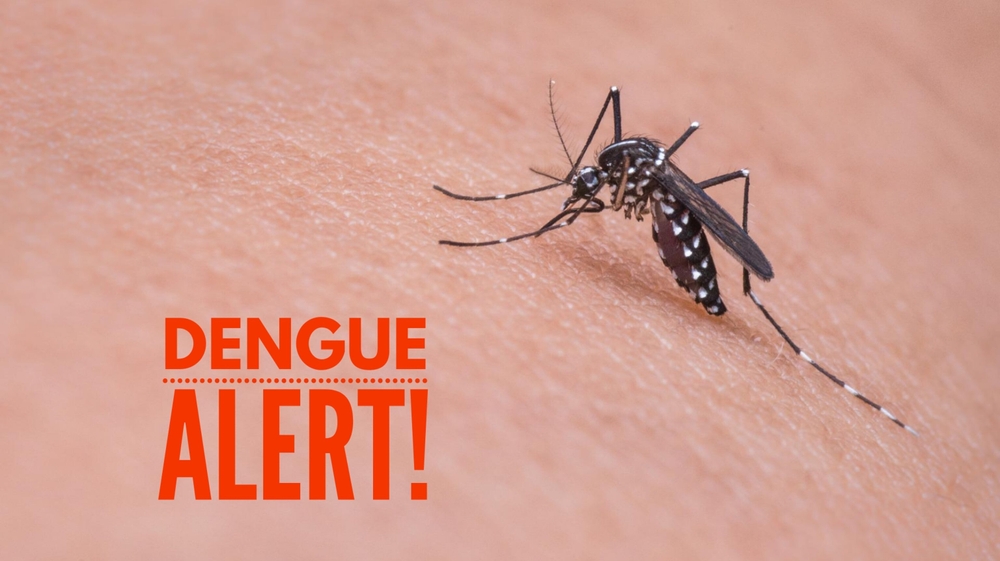Dengue Outbreak in Jamaica: What You Should Know and The Symptoms to Look For
by Carolyn Lee Oct 16, 2023

Jamaica’s Ministry of Health and Wellness recently declared a dengue outbreak on the island after the Ministry’s National Surveillance Unit advised that the country surpassed the Dengue epidemic threshold for July, August, and September. Most cases are seen in Kingston & St. Andrew, St. Catherine, and St. Thomas, with the dominant strain being Dengue Type 2.
What are the typical symptoms of dengue?
Dengue or break-bone fever is a mosquito-borne disease, typically a mild illness that may result in a high fever, nausea, headaches, body aches, and rash. Other common symptoms include fatigue, pain behind the eyes, mild bleeding, vomiting, and appetite loss.
How do you identify severe dengue symptoms?
Severe dengue symptoms include restlessness, extreme thirst, weakness, rapid breathing, persistent vomiting, and blood in vomit or stool. Other symptoms include fatigue, severe abdominal pain, cold and pale skin, and bleeding gums or nosebleeds.
Facts about dengue
- Dengue is transmitted to humans via bites of infected female mosquitoes (Aedes aegypti mosquito).
- Although rare, dengue can be fatal.
- Someone with dengue usually displays symptoms four to 10 days after infection.
- Some people may not display symptoms; most who catch it get better within a week or two.
- People who catch it for the second time are at greater risk for severe dengue.
- Severe dengue symptoms often show up after the fever goes away. You should seek medical care immediately if you display severe symptoms.
- After recovering, you may experience feeling tired for several weeks.
- There is no specific treatment for dengue, but most physicians focus on treating pain symptoms.
- Avoid using non-steroidal anti-inflammatory drugs like ibuprofen and aspirin, which can increase the risk of bleeding.
- Dengue symptoms can be confused with diseases like malaria, typhoid fever, Zika virus, or chikungunya. Tell your doctor if you have visited an area with a dengue outbreak and notice any symptoms.
How the Ministry of Health and Wellness is helping Jamaicans?
According to the Ministry’s website, the parish health departments have been carrying out enhanced fogging and treatment of breeding sites since July 2023. The opening hours for all Type 3–5 Health Centres were extended to 8pm on Monday, 2 October 2023, to facilitate people visiting these facilities for treatment and referrals where necessary. Also, children under the age of 18 years who visit the University Hospital of the West Indies will not be charged a fee or be required to pay for services at the facility.
What should you do if you have symptoms?
If you are experiencing mild symptoms of dengue, visit your doctor or health centre and follow the instructions you receive. You should rest, stay hydrated and use painkillers (paracetamol) to help with pain relief.
How can you help prevent dengue?
You can help prevent Aedes mosquito breeding by searching for anything water can settle in. Cover containers or keep them dry. It would be best to clean containers regularly or fill them with soil or sand. Punch holes in empty containers that might collect water or recycle or dispose of them properly.
Since the virus is caused by being bitten, you can use mosquito nets, destroyers, or insect repellents that contain Deet, IR3535 or PICARIDIN. It helps to wear protective clothing like a long-sleeved shirt and pants. Using screens on windows and doors or air conditioning can also help reduce the exposure to being bitten.
To stay updated on new developments related to dengue in Jamaica, visit the Ministry of Health and Wellness website. You can also use Find Yello to search for pharmacies, health centres, hospitals and related businesses with the necessary products or services to help you.
Sources: World Health Organization, Ministry of Health and Wellness, and Mayo Clinic.








